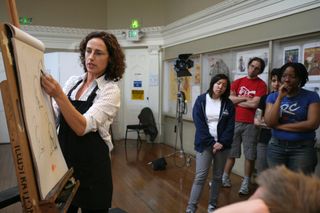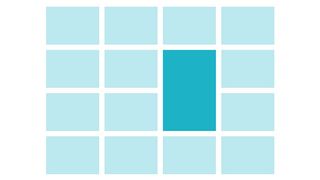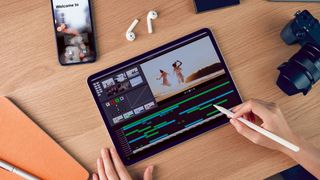10 ways to build your coding knowledge
CodeClan's team of instructors dish out some tips for those looking to start coding.
Teaching yourself to code is easier than it ever has been before but as a group of trained programmers, we also recognise how difficult it is to master.
So for those of you thinking of brushing up on your coding knowledge, here is our 10 pieces of advice to help you on your journey.
01. Hobby versus profession
Consider why you want to code. Is it for a hobby or a professional career?
If coding is a hobby and you have some ideas of what you want to create then go ahead and create them. Software and hosting is free and there are some great free online coding courses to help you learn. It doesn’t cost anything except time.
However, being able to program is a career booster and the professional advantages that come from it include good salary, the chance to travel the world, the opportunity to work for a major industry leader or even create your own start-up.
Ultimately, it is up to you what you decide to do with your coding knowledge.
02. Mastering the language
Many coding professionals will agree that there is no one ‘best’ language to learn and once you learn a new language, it’s a natural progression to learning the next.
Get the Creative Bloq Newsletter
Daily design news, reviews, how-tos and more, as picked by the editors.
HTML and CSS are good places to start but these are only the tip of the iceberg. Languages such as Ruby on Rails, JavaScript and Python are among the many other important programming languages out there.
If working for a company it is often a requirement that you know certain languages, so it’s worth having one or two specialties but be prepared to know others and put them into practice.
03. Patience
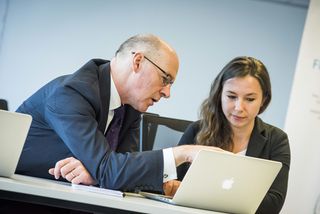
Start with the basics and be patient. Much of learning to code is about trial and error and for many, this is the enjoyable part of the coding process.
When learning, don’t get stressed or start rushing as this is where mistakes will occur. Take time to figure out why something hasn’t worked and think about how you can fix it.
The way people work differs greatly so if you work better with a deadline or end goal then set some and use them as motivation and a focus point. For others, dedicating an hour or two a night or a full day at the weekend perhaps works better.
04. What’s available
Find out what’s available in the community, whether it’s an online coding forum or going to a local coding club.
Having a strong community around can be a real morale booster when the going gets tough. Engaging with a community allows you to ask questions and get valuable feedback, as well as opening doors to potential job offers, finding a mentor or even getting a buddy that you can learn with.
Heading along to local networking and industry events is also a brilliant way to boost professional development.
If a local coding community is limited, the online community is brimming with keen programmers ready to tool up the next generation of coders. Try out Stack OverFlow, an online forum favoured by many programmers.
05. Consider a coding course
If you are coding for professional reasons, consider full-time courses in software development with the likes of CodeClan. CodeClan not only offers a great chance to learn whilst being supported but it also offers opportunities to network with businesses and is committed to helping graduates find work.
Coding academies are a great way to fast track yourself as they teach you to code in an immersive environment over a short space of time.
If coding is a hobby, free online courses with the likes of Codecademy are brilliant places to learn in your own time.
06. Brush up on your reading
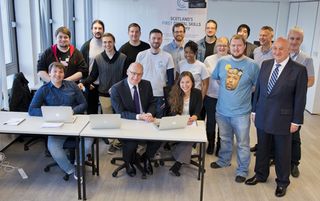
It would be fair to say that many of us now rely on a quick Google search when looking for answers but reading books can provide unique in-depth knowledge and perspective.
Popular programming books, such as ‘The Pragmatic Programmer: From Journeyman to Master’ or ‘Programming Pearls’, are great for learning new things and feeding off the knowledge and experience of others.
07. Break stuff
Also known as hacking other people’s code or reverse engineering, ‘breaking stuff’ is one of the best ways to learn.
Reverse engineering someone else’s code can provide a better understanding of how something works and in a professional environment, it is often the case that you will need to break someone else’s code in order to fix or alter their work.
08. Set yourself a project
Being proactive is a great way to learn, so if you have a passion for building things, go and build them.
It doesn’t matter what project you set yourself but start out small and take your time with it. Coding is all about trial and error and problem solving so try to explore every possible avenue before going somewhere for help. If in the end you are still stuck, go to someone for advice and input.
09. Create the right development environment
Building a development environment is important when you want to start writing your own programs and setting one up is a chance for you to chose what language and platform you like working with best.
Picking a development environment is a personal process but once picked, you can have some fun by customising it with various tools you enjoy working with.
The more comfortable you are with your environment, the better you will be able to work.
10. Find a mentor
Mentors are great at teaching best practice and are ideal for making sure you learn how to write ‘good code’ that is easily understandable to others.
They are also good for keeping you focused and can help speed up the learning process. Furthermore, mentors are great for telling you which mistakes to avoid and how to approach and solve problems.
If learning to code independently, you can find mentors at HackPledge but for coding academies such as CodeClan, your mentors are us – the instructors – and they can be crucial to your success as a developer.
Words: CodeClan's team of instructors
Images: Chris Watt
Like this? Read these!

Thank you for reading 5 articles this month* Join now for unlimited access
Enjoy your first month for just £1 / $1 / €1
*Read 5 free articles per month without a subscription

Join now for unlimited access
Try first month for just £1 / $1 / €1
The Creative Bloq team is made up of a group of design fans, and has changed and evolved since Creative Bloq began back in 2012. The current website team consists of eight full-time members of staff: Editor Georgia Coggan, Deputy Editor Rosie Hilder, Ecommerce Editor Beren Neale, Senior News Editor Daniel Piper, Editor, Digital Art and 3D Ian Dean, Tech Reviews Editor Erlingur Einarsson and Ecommerce Writer Beth Nicholls and Staff Writer Natalie Fear, as well as a roster of freelancers from around the world. The 3D World and ImagineFX magazine teams also pitch in, ensuring that content from 3D World and ImagineFX is represented on Creative Bloq.
